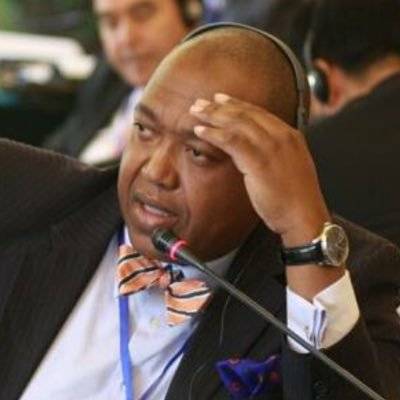The ongoing blockade of Qatar led by Saudi Arabia, the United Arab Emirates (UAE), Bahrain and Egypt has exposed the harshness of Middle Eastern politics. How did the situation sink to this level in such a short time? What has led some African countries to join the blockade in solidarity with the anti-Qatar forces?
The answer to the first question lies in the fact that Qatar has rejected political domination by Saud Arabia et al. The embattled Gulf state will simply not give up its political and foreign policy independence. As far as the African states are concerned, apart from Libya and Egypt, many were irritated by fellow African involvement in the current political row amongst “brothers”.
Two days after the political rift erupted, several African Union members — Mauritania, Mauritius, Senegal and Gabon — joined the fray, as did the Indian Ocean Republic of Maldives, condemning and severing ties with Qatar.
Read: Mauritanian parties urge govt not to cut ties with Doha
Mauritania is one of the poorest countries in the world. The World Food Programme estimates that 21 per cent of children under five are chronically malnourished. The north-west African state relies heavily on donor countries, mainly from the Gulf, to finance most of its projects, including the extravagant lifestyles of its politicians. Qatar Charity — which has, absurdly, been listed as a “terrorist” entity by the countries behind the blockade — is very active in Mauritania, giving large donations to alleviate hardship. Recently, a Qatari company inaugurated a large real estate project in Mauritania, whose Minister of Finance, Mokhtar Ould Diay, attended the inauguration ceremony. There are really no obvious reasons why Mauritania should be part of the anti -Qatar coalition.
Another African Union member, Mauritius, has signed a number of bilateral economic agreements with the UAE. Mauritians have very close connections with the wealthy Indian diaspora in the Emirates, particularly in Dubai; most have made substantial investments in Mauritius. In 2006, the UAE and Mauritius signed an important double taxation agreement. Two years ago, they also ratified an agreement on mutual encouragement and protection of investments.
In the case of Senegal, it has an obvious axe to grind with Qatar, where Karim Wade, a prominent Senegalese opposition politician is currently in exile. Wade was found guilty of corruption in a trial that most Senegalese regarded as politically motivated. The charges were brought two days after he announced his candidacy for the presidency of the country. He was sentenced to three years in prison and given a hefty fine. He has been living in Qatar for the past two years. Although it is not a member of the African Union, the position of the Maldives is strikingly similar to that of the African client states.
It joined the coalition for a variety of reasons, one of which was to get back at Qatar for a documentary produced by Al-Jazeera Investigative Unit which exposed a corrupt deep state in the republic. The documentary, Stealing Paradise, revealed a high level of corruption in the Maldives, uncovering a $1.5 billion money-laundering scheme involving Maldivian, Singaporean and Malaysian businessmen. The investigation also uncovered corruption at the heart of the tiny holiday nation involving a top judge and a former vice president in the embezzlement of state funds. Finally, Gabon has condemned Qatar but stopped short of severing ties with Doha.
#QatarGate
Gabon is a member of the Organisation of the Petroleum Exporting Countries (OPEC). President Ali Bongo Odimba, whose family has ruled the country since 1967, narrowly won elections which were declared by the EU and some other observers as “lacking transparency on the part of institutions organising the vote.”The decision by these countries expose the dangers of client state politics in Africa; put simply, many African countries remain indebted to foreign powers and they will do whatever it takes to please them.
This raises very important questions around the future of the African Union (AU) and its ambitious project of promoting African unity and political consensus based on consultation. The AU has played an important role in encouraging peaceful resolutions in the Middle East and has also been very pragmatic on other issues. Africa has been speaking with one voice, making its case louder at certain international platforms where it matters.
The Go-It-Alone attitude of African client states when it comes to serious foreign positions will only weaken the union. It threatens to resuscitate the primitive mentality which has been detrimental to African growth both politically and economically and will destabilise the continent, which is still recovering from years of conflict, colonial imperialism and wars instigated by external forces. As such, a unified position on these issues is critical. That said, it was encouraging to see a number of African countries coming out in support of a peaceful resolution to the impasse in the Gulf. Sudan broke ranks and joined the call for peace; it is among the few functioning Arab states that has shown leadership. Similar sentiments were heard from the President of Somalia, Mohamad Abdullahi Mohamed.Common sense should dictate a different trajectory to the one currently embraced by Saudi Arabia, the UAE and their allies towards Qatar, given the volatility of the Middle East.
Qatar is one of the world’s largest producers of natural gas, and any disruption of gas supplies is likely to impact negatively on the world economy.
The Gulf has been peaceful and economically prosperous; it employs and provides refuge to a number of people from war torn countries across the region. Further escalation against Qatar could result in another socio-political and economic disaster in the Middle East and North Africa.
The views expressed in this article belong to the author and do not necessarily reflect the editorial policy of Middle East Monitor.

![People hold flags and banners during a demonstration in support of Qatar on 9 June 2017, in Gaza, Palestine [Ali Jadallah/Anadolu Agency]](https://i0.wp.com/www.middleeastmonitor.com/wp-content/uploads/2017/06/2017_6_9-Demonstration-in-support-of-Qatar-in-Gaza20170609_2_24146920_22996340.jpg?fit=920%2C613&ssl=1)







